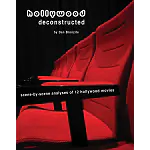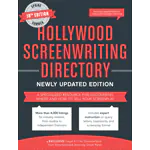Welcome to our Blog
Whose Point of View Is It?
Unless you are writing an ensemble movie like Robert Altman’s Short Cuts you will typically focus your story on a central character’s journey and the obstacles thrown in his…
Be Bold With Your Screenwriting
Every screenwriter wants to create an original, entertaining and memorable movie but that goal is often hard to achieve. There is no magic formula, no matter what anybody says. …
Structure Vs Free-Form Script Writing
Screenwriters, novice and pro, will inevitably have their own contrasting methodologies for writing a screenplay and you will often hear conflicting rules to adhere to from prominent screenwriting gurus…
The Selfless Hero
When we think of a hero in a movie we immediately assume we are talking about the central character otherwise known as the Protagonist, but many stories conceal a…
Nuvotech’s Creative Writing Software Now Available from Best Buy and Amazon in Canada
UK technology company Nuvotech today announced the availability of their popular creative writing software Movie Outline 3 and Script It! to Canadian customers through Best Buy's Canadian online store.…
High Concept Movies
For some screenwriters, penning an original high concept movie is the holy grail. And that can be a good thing or a bad thing. These days, the majority of…
Mixed Genres Can Lead to a Confusing Script
Writers get ideas for movies in various ways. Sometimes it’s overhearing a conversation on the bus, other times it may be a dream that inspires you to write a…
Good Screenwriting Means Being Original
Sometimes we, as people and writers, get lazy. It’s only natural. Life can be tough. Writing scripts can be hard. Please.. my heart bleeds. It’s time to take responsibility…
Nuvotech teams with the Dysfunctional Screenwriters Society
PHILADELPHIA, PA – The Dysfunctional Screenwriters Society has teamed with UK technology company Nuvotech, publisher of popular screenwriting software Movie Outline 3, to award winners of Power of the…



